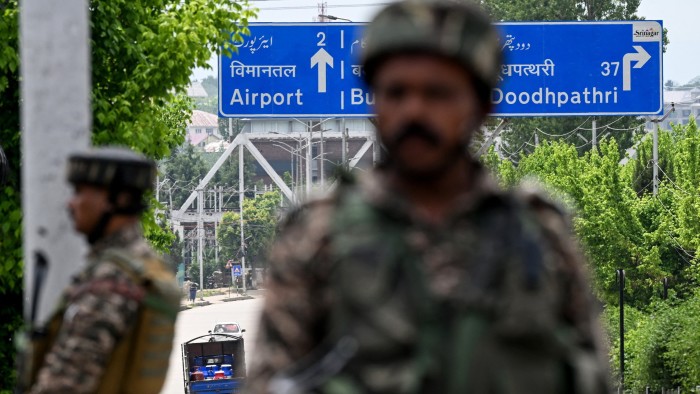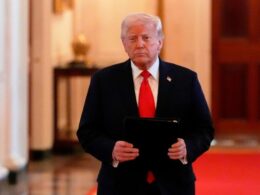Unlock the White House Watch newsletter for free
Your guide to what Trump’s second term means for Washington, business and the world
India and Pakistan said on Saturday that they had agreed a ceasefire to end the worst fighting between the two nuclear-armed powers in more than two decades.
US President Donald Trump claimed credit for the agreement in a social media post.
“After a long night of talks mediated by the United States, I am pleased to announce that India and Pakistan have agreed to a FULL AND IMMEDIATE CEASEFIRE,” Trump wrote on his social media portal Truth Social. “Congratulations to both Countries on using Common Sense and Great Intelligence. Thank you for your attention to this matter!”
Pakistan was first of the two south Asian countries to confirm Trump’s statement. Ishaq Dar, Pakistan’s foreign minister, wrote in a social media post that the countries had “agreed to a ceasefire with immediate effect”.
“Pakistan has always strived for peace and security in the region, without compromising on its sovereignty and territorial integrity!,” he wrote.
India also said that it had agreed to halt the air war that has in recent days seen exchanges of missile fire.
Vikram Misri, India’s foreign minister, said at a briefing in New Delhi: “The director-general of military operations of Pakistan called the director-general of military operations of India at 15:35 earlier this afternoon.”
“It was agreed between them that both sides would stop all fighting and military action on land and in the air and sea with effect from 17:00 hours today.”
He added: “Instructions have been given on both sides to give effect to this understanding.”
India fired missiles and launched drone strikes into Pakistan this week in retaliation for a gun attack by what it said were Pakistani-backed terrorists in Pahalgam, Kashmir, on April 22, which killed 25 Indian civilians and a Nepali.
According to Pakistan, India’s targets included air bases deep inside the country, including near its military headquarters in Rawalpindi.
India claimed that Pakistan had begun to mobilise troops towards the border, raising concerns that the conflict in the air could escalate into a broader war on the ground.
Both sides claim that their civilians were killed by the other side.
Marco Rubio, US Secretary of State, said in a statement that in the 48 hours running up to the ceasefire announcement, he and vice-president JD Vance had engaged with senior Indian and Pakistani officials including Indian Prime Minister Narendra Modi and Pakistani Prime Minister Shehbaz Sharif in a bid to end the fighting.
The talks also involved the two countries’ national security advisers, India’s Ajit Doval and Pakistan’s Asim Malik.
“I am pleased to announced the governments of India and Pakistan have agreed to an immediate ceasefire and to start talks on a broad set of issues at a neutral site,” Rubio said.
“We commend Prime Ministers Modi and Sharif on their wisdom, prudence and statesmanship in choosing the path of peace.”
Earlier, the State Department issued readouts of Rubio’s calls with Indian foreign minister Subrahmanyam Jaishankar and his Pakistani counterpart Dar in which he said both sides “need[ed] to identify methods to de-escalate and re-establish direct communication to avoid miscalculation”.
In a call on Friday with Pakistan’s chief of army staff Asim Munir, Rubio “offered US assistance in starting constructive talks in order to avoid future conflicts”, according to the State Department readout of the call.
Source link









